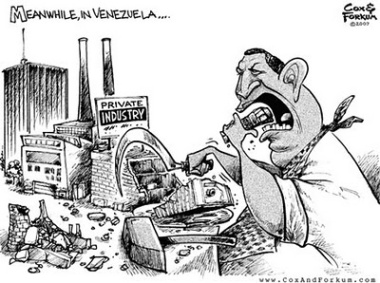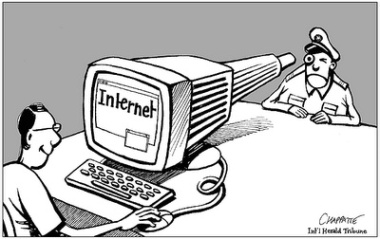I have written very little about the upcoming National Assembly elections. There are a number of reasons for this. While I do support whatever slate comes out of the “Mesa de Unidad” process and fortunately in my district candidates will be elected in a primary, it does not mean that it gets me very excited.
I know the opposition is so heterogeneous that it is not easy to get it to agree on everything, but at the same time, except for the fact that it is a lot more democratic than the non-democratic Government that presides over Venezuela, there are few parties there that are to my liking. If any.
I just know that the opposition candidates are better prepared and qualified than those ready to be anointed by Hugo Chavez as his deaf-dumb Deputies. But as you all know, I am in full agreement with Leopoldo Lopez in that ALL candidates should have been chosen in a primary. I just don’t like the “cappuccino” politicians that have been chosen, just because…even if they will be orders of magnitude better than the alternative.
I would have really liked to hear some nutty opposition candidate campaigning on the back of the proposal to eliminate the Venezuela’s military, double the education budget and a plan to provide real, good health care for all. We need new and real ideas, not to out-Chavez Hugo.
Then there is the question of how much we should get in September. I really would hate for the opposition to win. And it is irresponsible to sell the concept that we are likely to win. While it is true that between now and September the opposition will gain even further, it is not and easy battle not only because of the way the electoral districts have been redesigned, but because the Government will have more resources. Thus, to get a majority, the opposition may need to win in 55-60% of all the votes.
But I personally don’t think we want to win.
First of all, if the opposition wins, Chavez will spend the next three years blaming the opposition fro not being able to deal and handle the crisis that is already here. I have yet to meet a single economist that thinks the Venezuelan economy will grow in the next three years unless oil goes above US$ 100, which seems unlikely.
But more importantly, I think that an opposition with between 40% and 50% of all the Deputies will make life Hell for an autocrat that is not used to even talking to his own people. Seventy opposition Deputies are going to make life very difficult for Hugo, they will be interviewed going in ad out of the Congress building, they will have the right to speak, they will question and denounce. Not only is Chavismo not used to this, but things are such a mess that they will be unable to defend much.
And then there is the ultimate reason while we don’t want to have a majority. Chavez can always make the National Assembly irrelevant by bypassing it and leaning on his parallel structures to channel money to the communal power, making the National Assembly simply irrelevant.
Just some thoughts for all those asking what I think: Let’s have a plural National Assembly, let Chavistas cook themselves in their own salsa between 2010 and 2012 and let the opposition make lots of noise in the process. Who knows, we may even have a new leader emerge from all this. But let’s not get ahead of ourselves of what we can do and expect to do.


